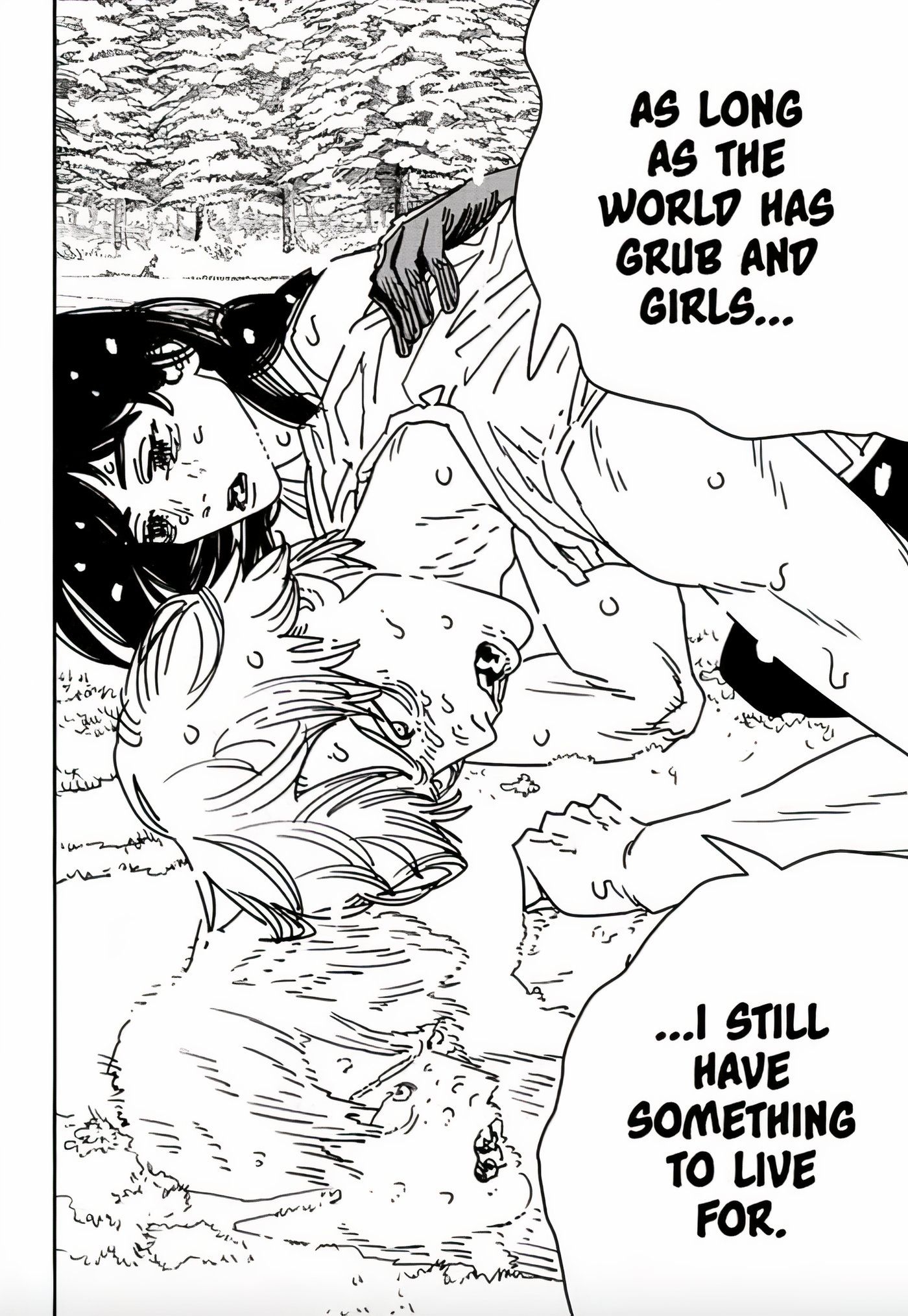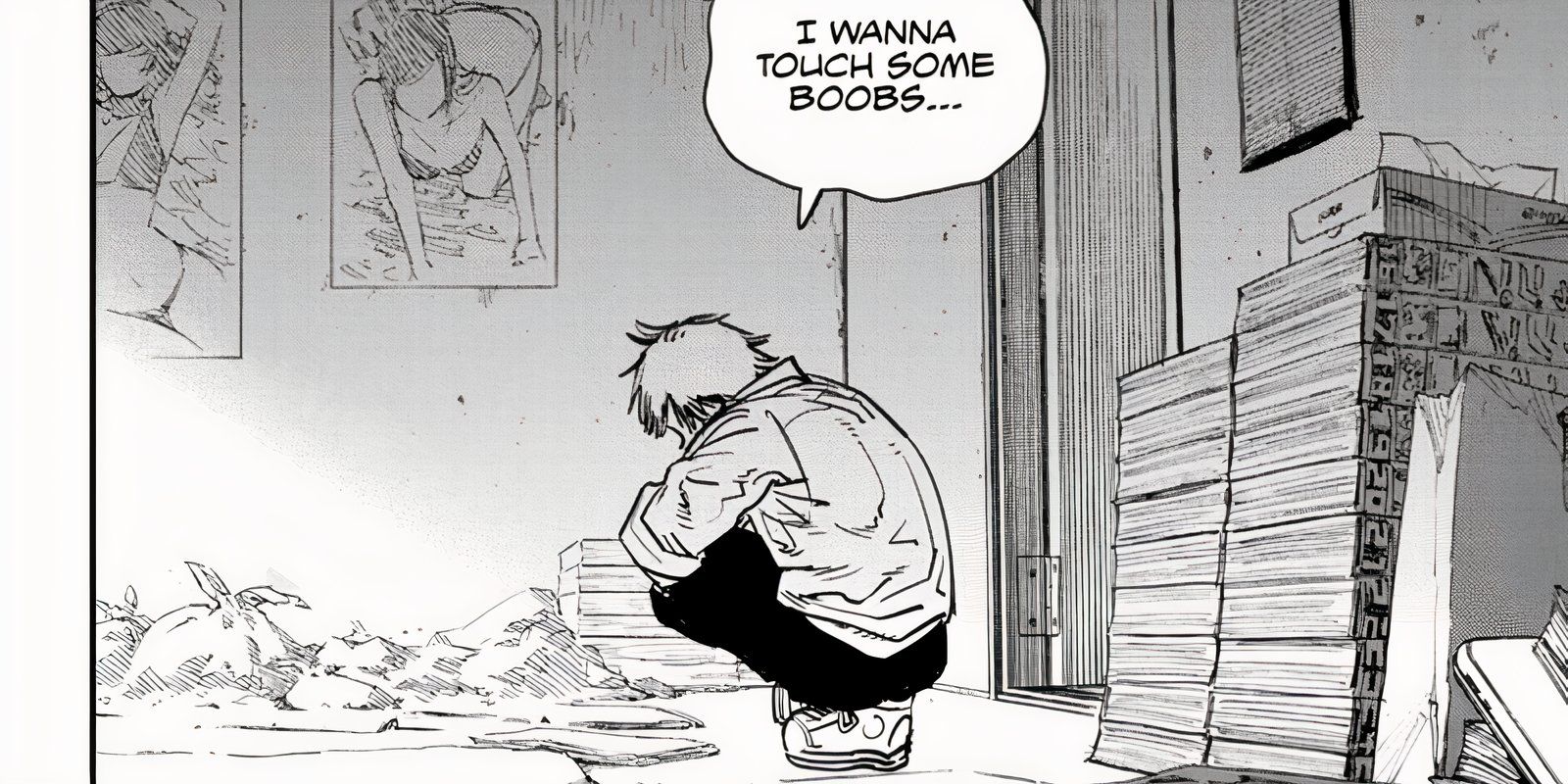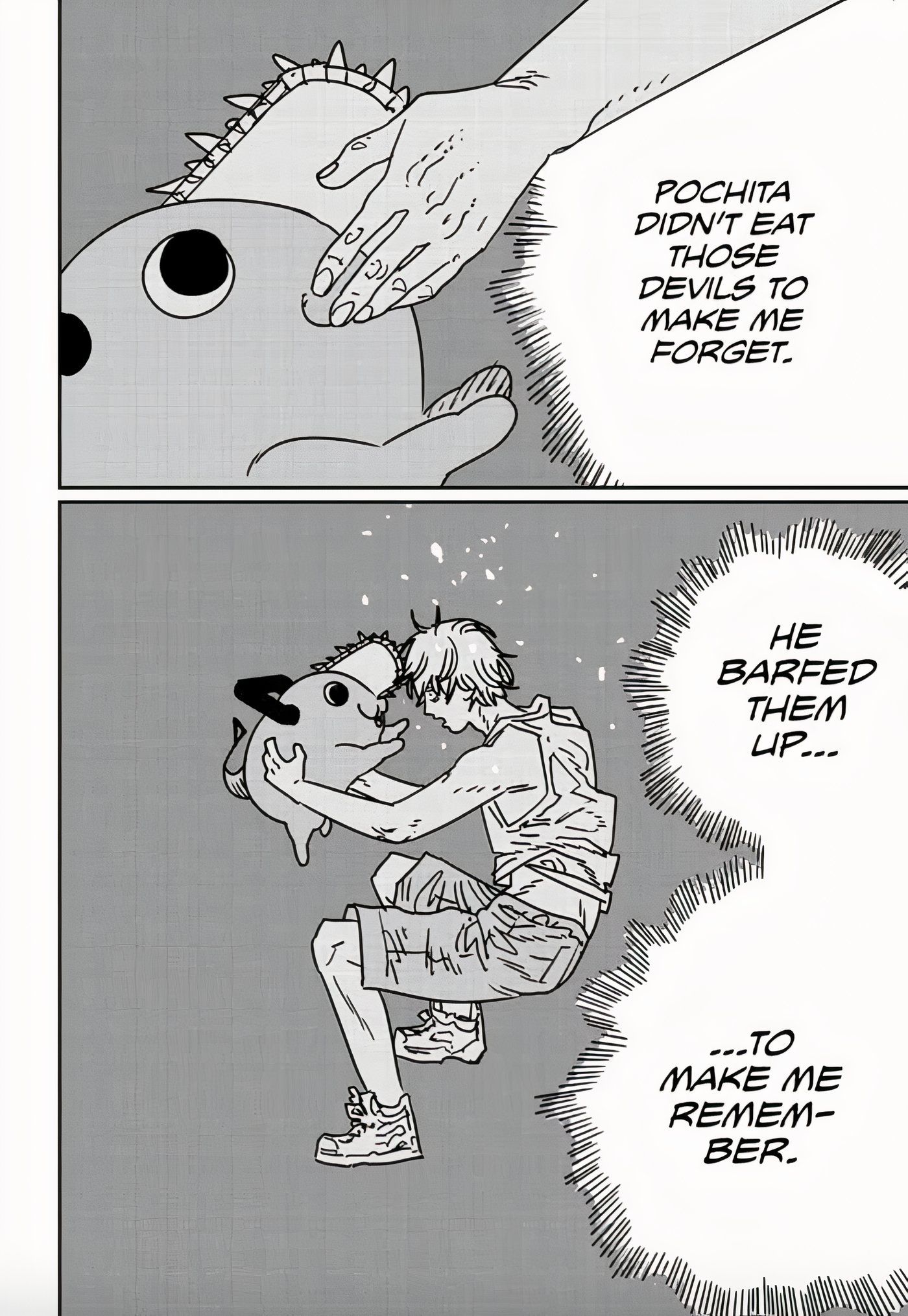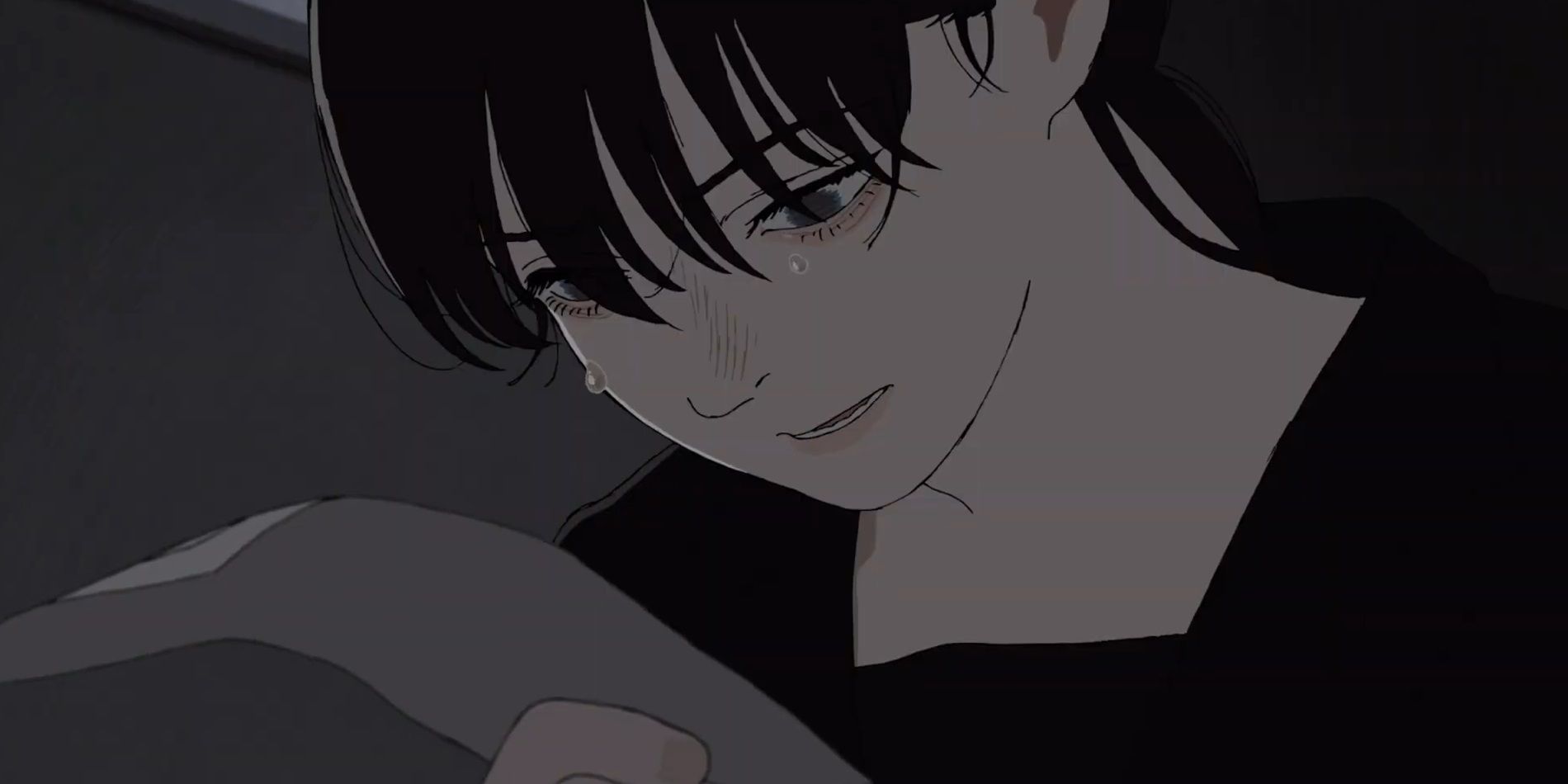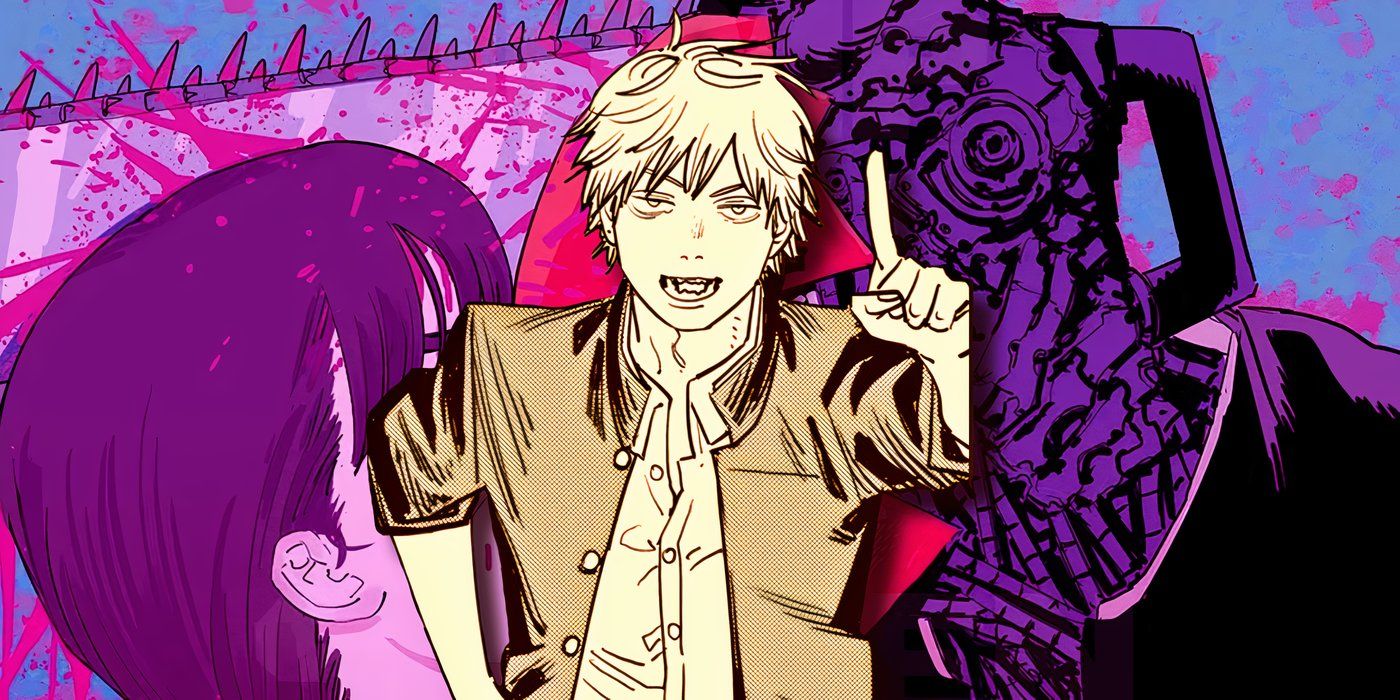
Warning: Contains spoilers for Chapter 183 of Chainsaw Man
Chainsaw Man was never shy about being rude. Throughout its 183 chapters, the series was gross, bloody, immature, exaggerated and, above all, genuinely moving. This is apparently the formula that author Tatsuki Fujimoto likes to employ, a formula that can be seen in most of his increasingly exemplary work. chainsaw manThe latest chapter #183, titled "Barf, Head, Perv", once again displays that trademark writing stylerevealing the series' heartfelt central theme in the crudest way possible.
The story of Denji and his saw dog involves many different things. In recent chapters, Fujimoto has decisively thrown subtext out the window in some scathing comments about the Japanese and American governments, addressed parent-child relationships, and sent his protagonists to an alternate dimension. But deep down, more than any other topic or theme, chainsaw man is a story about finding hope and reasons to keep living.
After going through some of the worst things life has to offer during the second part of the series, Denji has completely given up when he and Asa arrive in the World of Aging. But after some self-reflection and with the help of the always adorable Pochita, he remembers why Chainsaw Man always gets back up. With new determination, Denji proudly states, “As long as the world has food and girls, I will still have something to live for.”
Denji has a literal moment of self-reflection
Chainsaw man finds his reason to live while looking at his reflection
Looking at a reflection of himself in a puddle, Denji realizes he has a reason to continue living, despite the constant tragedy that afflicts him. It's not the search for justice or strength, some grand revenge scheme, or even being the best person you can be, like so many other shōnen protagonists. Instead, try it out a life that includes good food and girls. While this may seem primitive, fans of Tatsuki Fujimoto's works know that while one of his characters may say one thing, there is often an entirely different meaning hidden beneath their words.
Denji is an incredibly interesting main character. What he says is blunt and direct, and it may not seem like there is much thought put into his statements. But observing his character throughout chainsaw man will often reveal that he is a tremendously honest person who never learned to express himself. His first quest to “touch breasts” confirms this, as he achieves his goal, and it's not exactly what he wanted. Makima then teaches you that acts of intimacy are better the more you know and love the other person.
When Denji claims to want to "touch her breasts", What he's really looking for is intimacy. When he says he wants to eat good food, what he means is that he doesn't want to go hungry. In this last chapter, what Denji probably meant when he exclaimed that girls and food are his reason for living is that as long as he can find people he will love, while also being able to enjoy little things like good food , it is worth it. live. Tatsuki Fujimoto once again presents a hopeful central theme in a way only he can.
Pochita uses a different strategy to help Denji
The chainsaw demon no longer hides Denji's trauma behind a door
When Pochita took control of Denji's body in Chapter #171, he began specifically targeting and eating demons directly linked to Denji's past traumas. It was theorized among fans that the Hero of Hell was trying to erase these concepts to ease your best friend's pain and struggle. However, trauma cannot be avoided in order to heal a person, and Pochita is revealed to be well aware of this fact when her true intentions are brought to light in Chapter #183.
Pochita spent the first half of the chainsaw man trying to protect his best friend, hiding his trauma. In Part Two, he pushes Denji to face this.
Before Denji's final proclamation, he is forced to remember the people he has loved and lost throughout his time as Chainsaw Man, as the demons that Pochita ate begin to expel themselves from his stomach. Memories of the family he found with Aki and Power, as well as his first bitter taste of love with Reze come flooding back as he sinks into the lake. Pochita wasn't trying to get rid of Denji's trauma, but rather remind you of all the good that came along.
This strategy to help Denji is the exact opposite of what Pochita was trying to do in chainsaw man Part One. There were several scenes in which the main character dreamed of a door, behind which the Chainsaw Devil urged him not to open it. Hidden behind that door was the first traumatic event Denji had ever experienced: the truth behind his father's death. Pochita spent the first half of the chainsaw man trying to protect his best friend, hiding his trauma. In Part Two, he pushes Denji to face this.
Tatsuki Fujimoto and hiding hope in tragedy
The author maintains a constant theme throughout his stories
Despite the crude explanation of Denji's reason for living, the message behind his words is incredibly hopeful. chainsaw man is communicating that although life is painful, memories made with loved ones can withstand any tragedy. This theme is not only at the heart of chainsaw manbut is present in most of Tatsuki Fujimoto's stories. Fire PunchAgni shares a similar quest to find reasons to live, while the recently adapted Look back incorporates the theme of finding hope in tragedy.
Fujimoto, in a collection of one-shots, revealed that a natural disaster served as the main inspiration for Look backwhen the 2011 Tohoku earthquake made him question the reason for the drawing. Like Fujino in the story, he discovered that despite the tragedy occurring in the world, art is still significant, if only for the positive impact it can have on both its creator and those who connect with it.
chainsaw mandespite being crass, crass, crass, and vulgar at times, it is a story that uses dark themes to convey incredibly hopeful messages to its audience. And while Denji may seem immature in the latest chapter 183, his words carry a lot of weight and signal significant growth in his character. Next chapters of chainsaw man it's sure to be weird and wonderful, and feature a newly determined protagonist fighting for his chance with girls and food.
